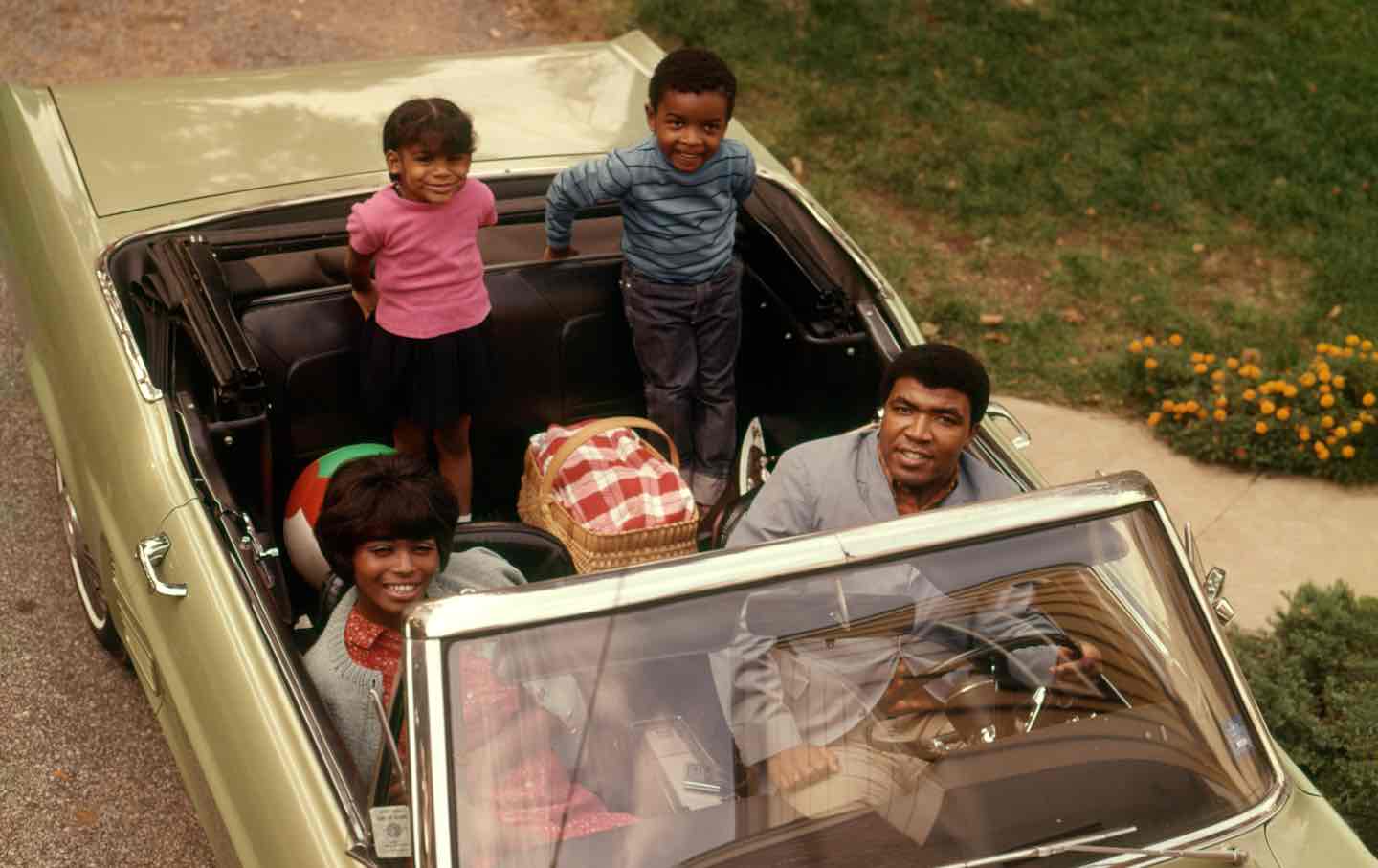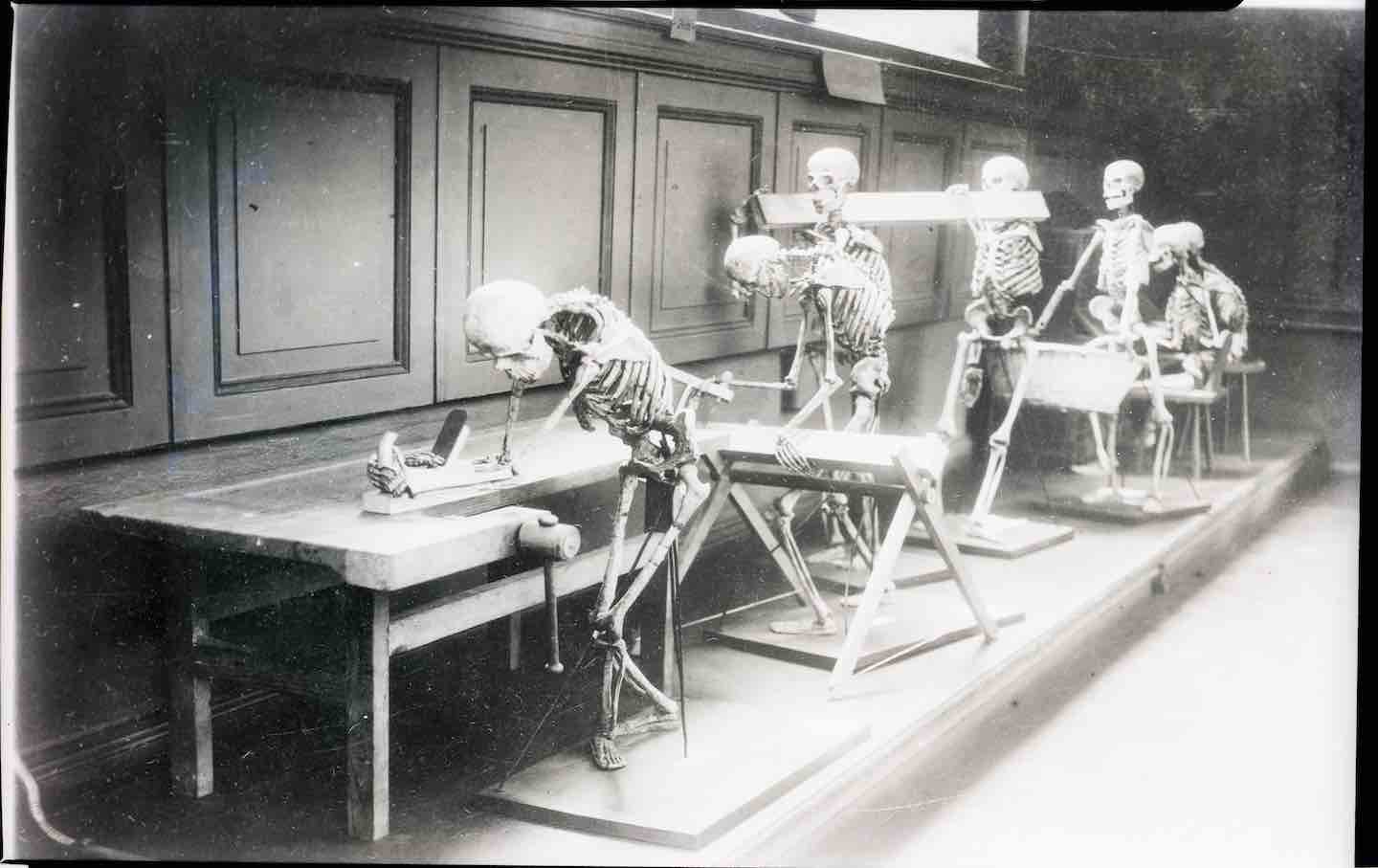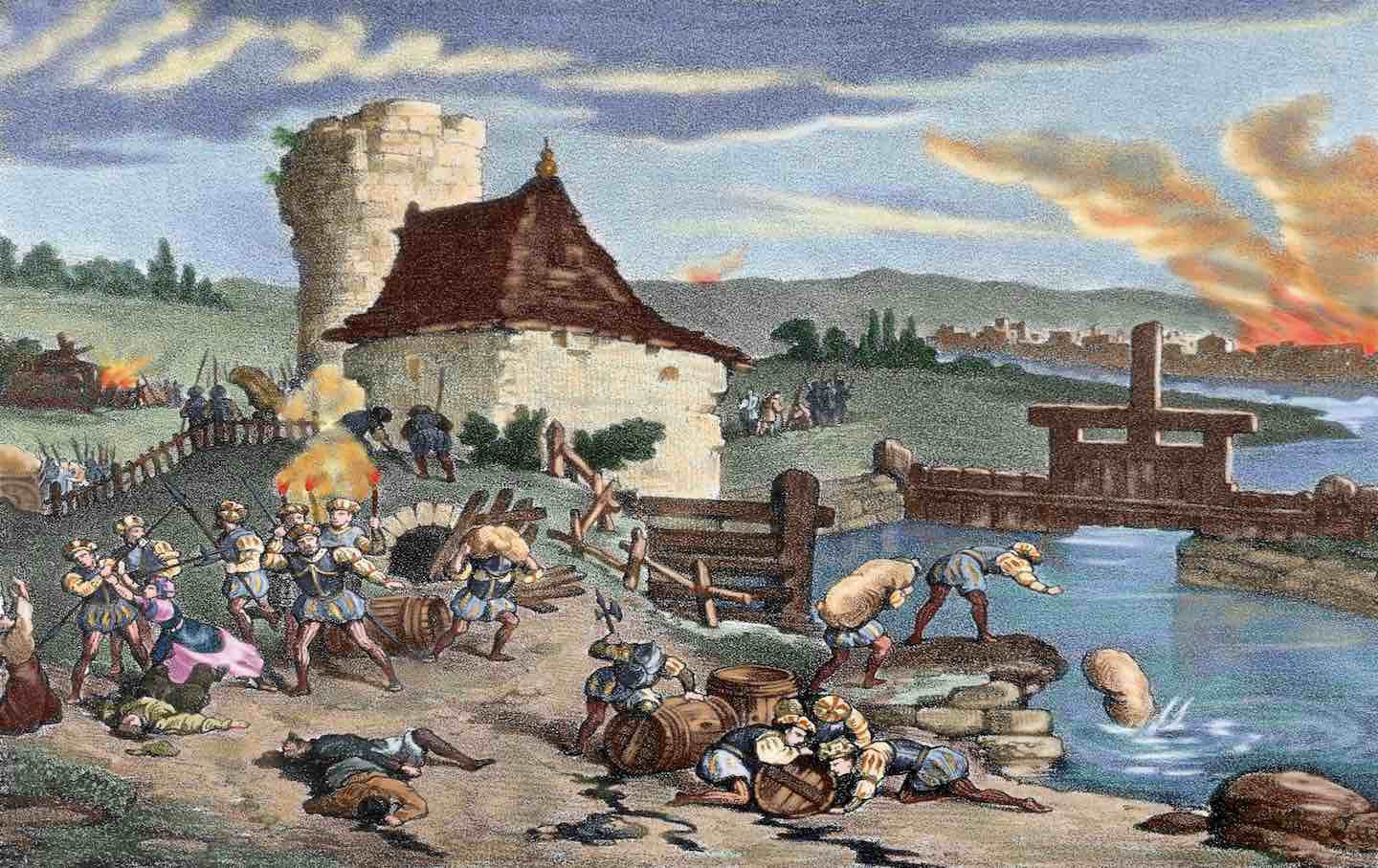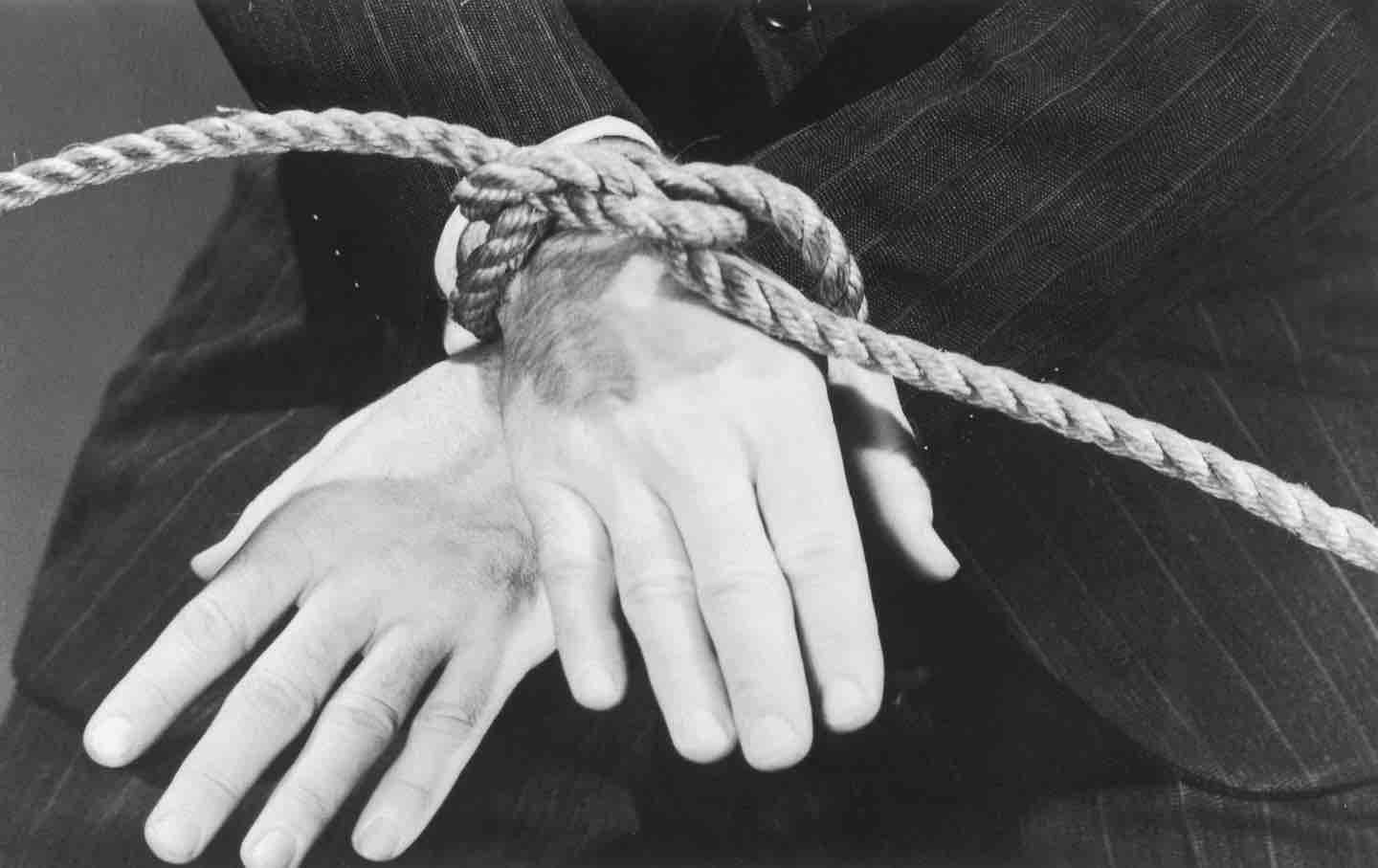The History of Equality: It’s Complicated
A conversation with the historian Darrin McMahon about his new book Equality: The History of an Elusive Idea and the strange and contradicting development of the liberal version of egalitarianism.
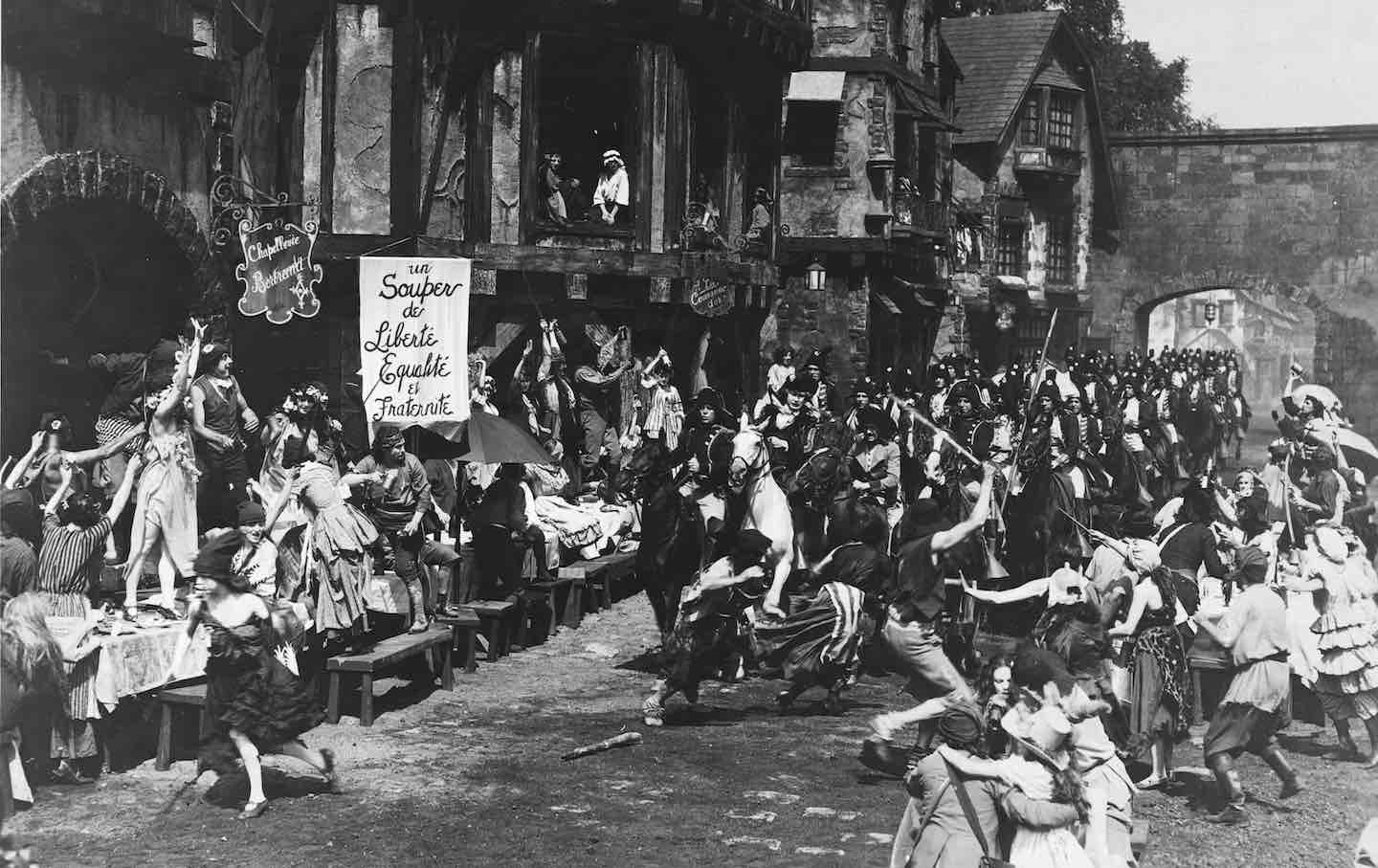
Books abound these days on the subject of inequality, spanning categories such as race, class, and nationality. But what is “equality” in the first place? What does it mean, and for whom? Darrin McMahon’s new book, Equality: The History of an Elusive Idea, sets out to answer these questions by providing a truly global intellectual history of equality from the dawn of humanity until today. In doing so, McMahon, a professor of history at Dartmouth College, argues that ideas of equality invariably contain within them the exclusion of others from that state. This is why Marx and Engels remained critical of bourgeois notions of equality: Underlying such notions, they insisted, lies an individualist conception of rights that does not address class difference in a capitalist system. For Marx, McMahon contends, overcoming class division rather than inequality was the priority. Likewise, anti-liberal conceptions of equality, such as those espoused by the Nazi jurist Carl Schmitt, are fully cognizant of such exclusions and reject liberal aspirations of universal equality as inherently hypocritical and politically self-serving. But if Marx and Schmitt are right about the inherent exclusions underpinning liberal doctrines of equality, what does this mean for how we understand growing inequality today? Might the long history of equality that McMahon discusses offer resources for rethinking equality anew for the present moment?
The Nation spoke with McMahon about the history of equality and the tools that his work offers for addressing contemporary political and economic challenges. This interview has been edited for length and clarity.
—Daniel Steinmetz-Jenkins
Daniel Steinmetz-Jenkins: Your book offers a panoramic history of the idea of equality from the dawn of humanity to the present moment. Interestingly, you spend a lot of time discussing the origins of equality not only by examining the supposed “fierce egalitarianism” of hunter-gatherer peoples, but also by raising the question of how equality is expressed by our common living ancestors—namely, the great apes. Is there a danger, though, in such an approach, given that “reasoning by analogy to our ancestry,” as you put it, has justified violence and wars and the discourse of the survival of the “racially fit”?
Darrin McMahon: Absolutely, there is a danger. Some very fine scholars, including Donna Haraway, Cordelia Fine, and most recently Erika Lorraine Milam in her Creatures of Cain: The Hunt for Human Nature in Cold War America, have done invaluable work in bringing those dangers to the fore, and I’ve done my best to be mindful of them. But I also believe that it would be naïve to simply ignore the fact that we share over 98 percent of our DNA with the great African apes—bonobos, chimpanzees, and silverback gorillas—and that all of them, including matriarchal bonobos, are intensely hierarchical creatures. Now that doesn’t mean that we should live like them, of course, or that we somehow already do by default. Far from it: Social forms rarely follow simply from nature, nor should they. And yet I am persuaded by primatologists such as Jane Goodall and Frans de Waal, who argue that observing the “politics” of the great apes can teach us things about ourselves. The lesson here is that, just like our primate relatives, we human beings are obsessed with status and rank, even though it can make us uncomfortable to acknowledge. Sociologists and psychologists have been doing important work of late to show how status consciousness is fundamental to human interactions of all sorts. It is everywhere, like the air we breathe—ever-present, but difficult to see.
Yet I also argue, again with reference to our early ancestors, that an impulse to resist hierarchy and domination is no less fundamental to who we are. Homo sapiens are moved by norms of fairness and reciprocity, which can be channeled to egalitarian ends. That makes us, as a species, somewhat conflicted: We want equality, and we don’t. I think it is important to acknowledge that ambivalence. If we really desire equality, we need to understand that it involves overcoming some pretty strong predilections that work against it.
DSJ: This raises a larger question about your general historical approach, which covers the vast periods of antiquity; the Enlightenment and the French Revolution; the social question in the 19th century; the rise of fascism during the interwar period: the global Cold War; and the state of equality in our contemporary moment. Aren’t you afraid of the charge of so-called “presentism”?
DM: It is interesting that you invoke fear in this question, and danger in the last. You make history seem like risky business! I suppose it is. I’ll readily admit that in all my books—and particularly this one, given the passions that the subject of equality can elicit—I have worried a great deal: about coverage, about omissions, about doing justice to the complexities and the various actors involved. Any time you attempt something as quixotic as a history of ideas over the longue durée, you open yourself up to the charge: “Well, what about this, and what about that?”
But “presentism” worried me less, in this case, than other issues. My friend, the political theorist Teresa Bejan, who also studies the history of equality, likes to say that it is the last great “Whig” idea. The reference is to a book from the 1930s by the English historian Herbert Butterfield, The Whig Interpretation of History. Butterfield identified—and criticized—a strand of history that singles out developments in the past as leading progressively and necessarily to a desired outcome in the present: in the case he analyzed, to the politics of the English Whig party, seen in a kind of blinkered fashion as the standard of all that was right and true. The history of equality, to the extent it has been studied seriously at all, has long been told in this “Whig” fashion, as if the people in the past were struggling slowly, imperfectly, towards the fuller equality of the present and (it is hoped) of the future. Rather than ask how equality has been understood contextually in order to examine the various uses to which ideas of equality have been put, these historians have looked at it in precisely the fashion you worry about, judging the past according to the standards of the present.
I set out to do the opposite: to try to understand how equality has been imagined in the past, and to examine the many and varied uses to which it has been put over time. It turns out that they are extensive. The common conception that equality is strictly a modern notion—without a history prior to the 17th and 18th centuries—is just wrong, and I try to show how these older uses bear on later ones. I would argue—drawing here on my colleague David Armitage’s recent work on the subject—that every history is unavoidably “presentist” in certain respects. But rather than project the present onto the past, I’ve tried to allow the past to project some of its light on our current moment.
DSJ: Perhaps one of your major arguments in the book is that ideas of equality contain within them the exclusion of others from that equality. How does this apply to the thought of Karl Marx? In what sense, that is, was he a critic of equality?
DM: Yes, I try to show that equality claims in general invariably involve the singling out of a circle of equals, whose common “equality” is constituted, and then strengthened and reaffirmed, by reference to those who are deemed “not equal” in some way. That often involves othering or scapegoating, and of course you can see the latter going on in Marxian denunciations of the bourgeoisie, of kulaks, etc. But really, the more salient point is that both Marx and Engels, and their close readers like Lenin and Stalin, are contemptuous of “equality” as an ideal and aspiration. Lenin calls it “a most absurd and stupid prejudice.” They associate equality, to be sure, with bourgeois ideology and specious individual-rights talk, as well as with what they regard as the fantasies of earlier socialist schools. Equality, Marx and Engels write in The German Ideology, is one of the “illusions of the era,” a holdover from an earlier phase of historical development.
But the critique goes deeper than that—right to the heart of the social-democratic impulse to put questions of distribution at the center of politics. For Marx and Engels, the point of true socialism is the abolition of classes, not the abolition of inequality per se, and so once you accomplish one, the other becomes irrelevant. It is one of the reasons that Soviet economists didn’t study income or wealth inequality. Moreover, both Marx and Engels are explicit about the fact that human aptitudes and needs vary widely. So, in a state where each is asked to give “according to abilities” and will be given to “according to needs,” those will necessarily differ extensively. There is no indication in Marx and Engels’s work at all that material fairness or equality will be the result.
DSJ: I found it interesting that what you say about Marx was fully recognized by fascist and/or right-wing thinkers in the interwar period in Europe, such as Benito Mussolini, Carl Schmitt, and many others. We are prone to think of fascism not in terms of equality but of harsh exclusions. In what sense does this need to be qualified?
DM: This was another surprise—the preoccupation in fascist circles with ideas of equality. That involved, first and foremost, a critique of liberal and social-democratic understandings of equality. In the 1920s, various Italian ideologues and people like Schmitt in Germany drew attention to what they regarded as the hypocrisy and speciousness of liberal-democratic claims to universal equality. In Schmitt’s view, real equality must always rely on what he called “substance,” the thing that binds together equals as equals. That substance could be different things, such as common historical experience, religion, virtue, or race. But where such a homogeneous substance was lacking, claims to universal equality would prove “empty” precisely because they lacked a strong binding force. By leaving real inequalities intact, such empty claims generated tremendous hypocrisy, as in the British or American cases, where assertions of universal equality masked myriad exclusions (of race, imperial domination, and so forth). In Schmitt’s view, the Nazi regime had the “courage,” as he termed it, to do openly what liberal regimes hid from themselves: “to treat unequals unequally and to push through the necessary differentiations.”
That meant not only the explicit and terrible campaign to eradicate heterogeneous elements among the people, but also the creation of an elaborate legal system based on what Nazi jurists called Artgleichheit, the equality of race or type. It was a central organizing principle of the regime, and a great deal was made, at least rhetorically, of the equality of the people or Volk. This sort of rhetoric is important, I think, and worth paying attention to closely, not least because it is being revived self-consciously by elements of the right today. Much of it, then as now, played shrewdly on status anxieties, weaponizing fears of diversity to assert a kind of fictive bond among the people. Although psychologically crude, it was effective, and the rhetoric underlines the point that, often, equality can be as much about words and status perceptions as about actual possessions and power.
DSJ: How does your argument regarding the inherently exclusionary nature of “equality” help us think about the political nature of the major institutions of international governance established after World War II—notably the United Nations, the World Bank, the International Monetary Fund, and so on? And doesn’t your understanding of “equality” mean that, regardless of how much the institutions are reformed, they will always be hierarchical, preventing real equality among member states?
DM: I don’t know whether international institutions will always be hierarchical. Most likely. But those you cite after World War II certainly were. I am interested in the ways in which declarations of “sovereign equality” in nation-states and “global equality” in the world came into conflict, revealing underlying obfuscations and pointing up how often conceptions of equality dissipate once one crosses national frontiers. Toward the end of the chapter on sovereign and global equality, I cite a plaintive line from the great Swedish economist Gunnar Myrdal, who pointed out in 1958, amid the full throes of the construction of the welfare state in the West, that “in a queer way…the equality doctrine, in so far as it concerned international relations, was from the beginning almost entirely blotted out from practical attention and much more completely so than it ever was in regard to purely national issues.” It could serve as the epigraph.
DSJ: How did Martin Luther King Jr. come to the realization that the struggle for Black equality in the United States was “bound up in struggles genuinely global in their sweep,” as you put it?
DM: King’s recognition of the global dimensions of the struggle for Black equality is symptomatic of a wider tendency growing out of the Black radical tradition, which had long been cognizant of the global dimensions of racial oppression. But that long-standing awareness—particularly evident, for example, in a thinker like W.E.B. Du Bois—was heightened in the context of the anti-colonial struggles following World War II. King was impressed by the 1955 Bandung Conference, which brought together Asian and African leaders in support of the “equality of all races,” and in 1957 he traveled to Ghana at the invitation of Kwame Nkrumah to attend the new African nation’s independence ceremony. The trip made a great impression on him, as did a further voyage in 1959 to South Asia. India, of course, had a special significance for King as the birthplace of Gandhi, one of his great spiritual and intellectual heroes. He laid a wreath on Gandhi’s entombed ashes at Raj Ghat and met with members of Gandhi’s family. But the trip also impressed on King the structural similarities between caste oppression in India and racial oppression in the United States, and the common plight of Dalit people in South Asia and American Blacks. He never lost that sense of solidarity among peoples, which only reinforced his deep Christian commitments to the equality of all human beings before God. In the last years of his life, King gave that solidarity lasting expression: All inhabitants of the globe were now neighbors, common occupants and heirs of “a great ‘world house’ in which we have to live together—black and white, Easterner and Westerner, Gentile and Jew, Catholic and Protestant, Muslim and Hindu.” Those words are over 60 years old, but they couldn’t be more timely.
DSJ: Let’s talk about the present. How do we explain increasing equality in terms of, say, marriage equality and advances in LGBTQ rights, as well as a general decline of racial and ethnic prejudice since the 1950s, on the one hand, and increasing economic inequality since the 1970s, on the other?
DM: I’d say a couple of things. The first is to point out a common assumption that perhaps lingers in your question—namely that civil, political, and economic equality naturally go together, following one from the other. That is a view that first gets articulated around the time of the French Revolution. I call it a “cascade” thesis: the idea that equality, along with rights, will spill out and down like water trickling over rocks, pooling and spreading over ever-wider surfaces of the earth. The idea, to quote the trenchant phrase of the political theorist Anne Phillips, is that equality possesses some kind of “inner logic” of its own, propelling its progressive extension and expansion. A similar conception is reaffirmed, famously, after World War II by the British sociologist T.H. Marshall, who presented human history as a gradual progression from civil to political to economic equality. It is a nice idea, and in the context of the construction of welfare states in the Global North, it had some credence for a time. Yet there is nothing ineluctable about the process, and more often than not in human history, civil, political, and economic equality don’t go together. So there may not be the need for an explanation in quite the way you are asking.
I would also point out that when we speak of “increasing inequality since the 1970s,” we have to delineate the context. I assume that you mean broadly the Global North, and the United States in particular. There, it is certainly true that we have seen a massive increase in income and wealth inequalities since the 1970s, as you say. But it is also true that in roughly the same period, global inequality, as measured by the total number of people in the world, has dropped sharply—largely as a consequence of economic progress in China, but also in India, Vietnam, South Korea, Indonesia, and other nations. It is really an astonishing reduction in global income inequality, one unprecedented in world history, pulling hundreds of millions of people out of poverty in the process. Too often, we forget that when we consider inequality solely from the vantage point of rich nations like the United States.
But that is not to make light of the plight here, and in the other nations where income and wealth inequalities have soared. There are those on the left, as you know, who have argued that the turn toward what is styled (most often pejoratively) “identity politics” beginning in the 1970s was effectively the cause of rising economic inequalities thereafter. By taking their eye off the ball of material interests, the argument runs, activists got sidetracked: They focused on the “soft” issues of recognition and validation with respect to race, sexuality, and gender, rather than on the “hard” question of distributive justice, with the effect that economic inequalities were allowed to run amok.
That is not my view, however. I think one can argue that the kind of tax and welfare policies that allowed for economic compression in the United States and in many countries of Europe right after World War II were enabled by exclusions—of Black Americans above all in the United States, and of the former subjects of empire in Europe beyond its borders. It was only when these groups began to make increasingly vocal demands for inclusion that majority populations decided either that they weren’t ready to offer further political support for the kinds of economic policies that allowed for compression, as we’ve witnessed in the United States, or that they would only do so if immigrants could be kept out, as one sees in Europe (and not just there). It is a striking development, for example, that a number of the countries with the most robust welfare states—Denmark, Sweden, Norway, the Netherlands, France—have witnessed some of the most vocal reactions against immigration, often spearheaded by the very parties and voting blocs that were once the welfare state’s greatest supporters.
DSJ: Given that the era of neoliberalism is, according to many, passing away, do you believe that we are entering into one of the eras that you describe as either of “leveling,” “domination,” or “balance?” What is your prognosis, that is, for the future of equality?
DM: I always laugh when historians are asked to predict the future… that is not part of our job description! At least not any more. It is true that well into the 19th century, historians were regularly expected to model the future on the lessons they drew from the past. But that assumed a degree of continuity over time that in our rapidly changing world is no longer possible.
But I’m dodging the question, so let me lay out two perspectives. I discuss some of the bleaker scenarios and more pessimistic prognoses for the future in my conclusion: the prospect of “leveling” by violent rupture, of the kind that the historian Walter Scheidel attributes to the “four horsemen” of state failure, total war, plague, and revolution; the advent of populist and right-wing movements that promise equality to their peoples on the basis of the domination of others; the possibility that perceptions of the balance between equality within nation-states and among the peoples of the world will continue to justify tremendous global inequalities; the prospect that growing monopolies of knowledge and technology will further widen the vast gulfs between the super-rich and everyone else. I am personally someone who believes that optimism is a virtue, and a virtue that too many on the left have neglected of late. But clearly there is much to be bleak about.
That said, the more hopeful insight would be that human beings have shown themselves incredibly adept at inventing and reinventing understandings of equality over time. That is one of the key revelations in my book, and I hope it will be sustaining at a time when inequalities of all kinds dominate our perspective. But it is important to realize that this perspective—what the British sociologist Mike Savage calls our current “inequality paradigm”—can be distorting, blinding us from the possibility of change. Equality is an incredibly protean and resilient ideal, and human beings keep coming back to it. I wouldn’t count out our capacity to reinvent it for a new age, and I’ve tried to offer some food for thought for undertaking that vital project.
We cannot back down
We now confront a second Trump presidency.
There’s not a moment to lose. We must harness our fears, our grief, and yes, our anger, to resist the dangerous policies Donald Trump will unleash on our country. We rededicate ourselves to our role as journalists and writers of principle and conscience.
Today, we also steel ourselves for the fight ahead. It will demand a fearless spirit, an informed mind, wise analysis, and humane resistance. We face the enactment of Project 2025, a far-right supreme court, political authoritarianism, increasing inequality and record homelessness, a looming climate crisis, and conflicts abroad. The Nation will expose and propose, nurture investigative reporting, and stand together as a community to keep hope and possibility alive. The Nation’s work will continue—as it has in good and not-so-good times—to develop alternative ideas and visions, to deepen our mission of truth-telling and deep reporting, and to further solidarity in a nation divided.
Armed with a remarkable 160 years of bold, independent journalism, our mandate today remains the same as when abolitionists first founded The Nation—to uphold the principles of democracy and freedom, serve as a beacon through the darkest days of resistance, and to envision and struggle for a brighter future.
The day is dark, the forces arrayed are tenacious, but as the late Nation editorial board member Toni Morrison wrote “No! This is precisely the time when artists go to work. There is no time for despair, no place for self-pity, no need for silence, no room for fear. We speak, we write, we do language. That is how civilizations heal.”
I urge you to stand with The Nation and donate today.
Onwards,
Katrina vanden Heuvel
Editorial Director and Publisher, The Nation

